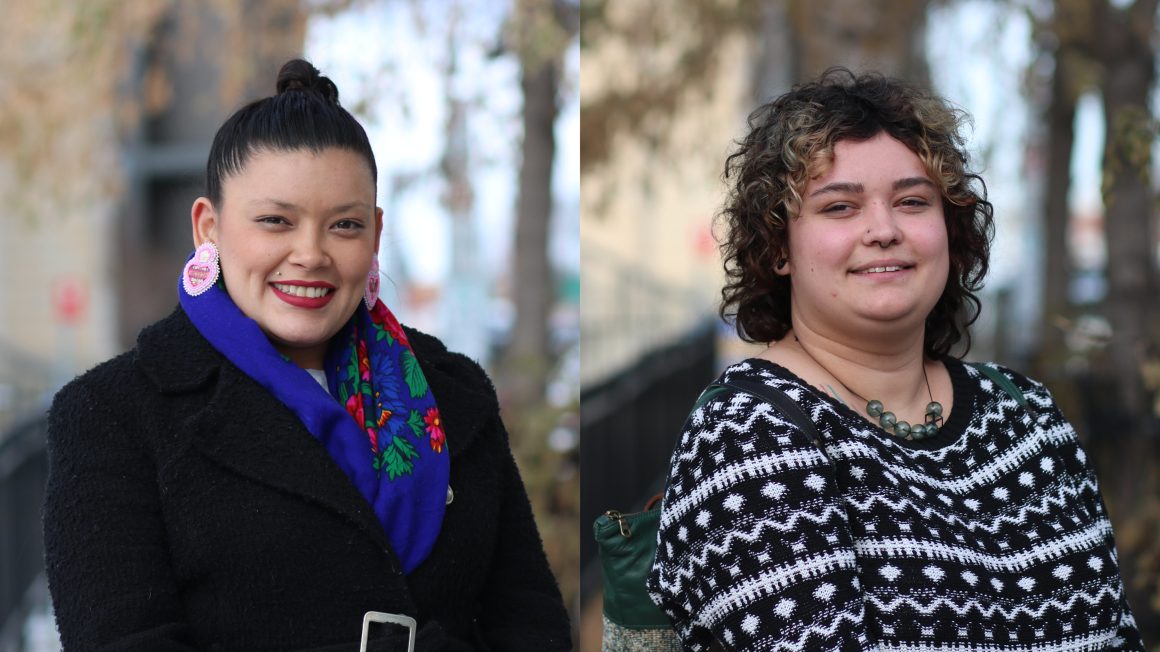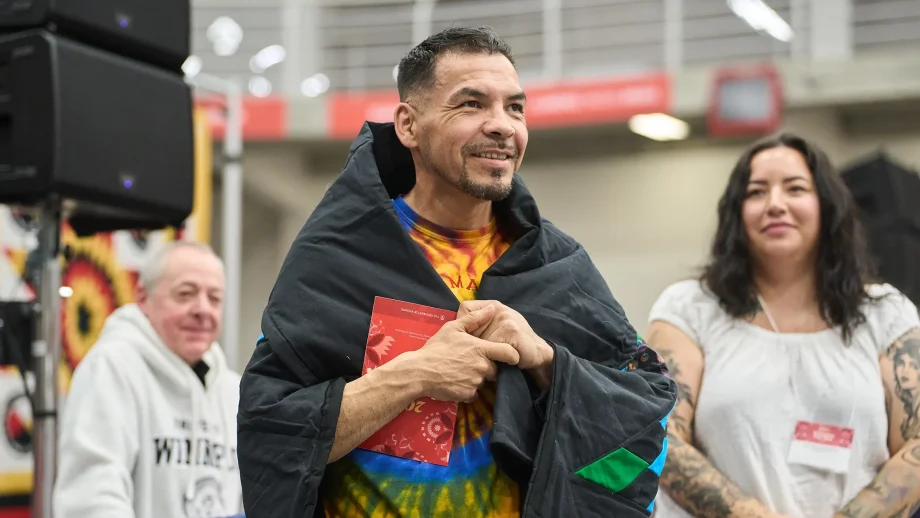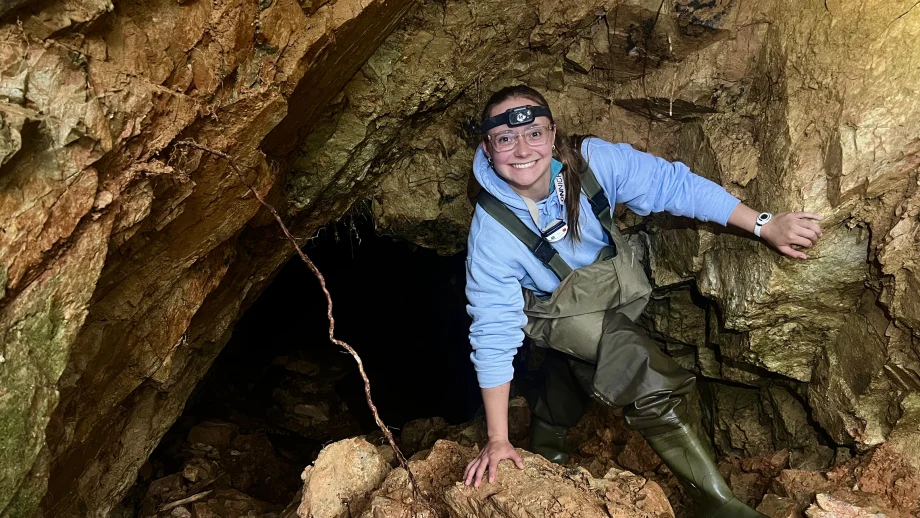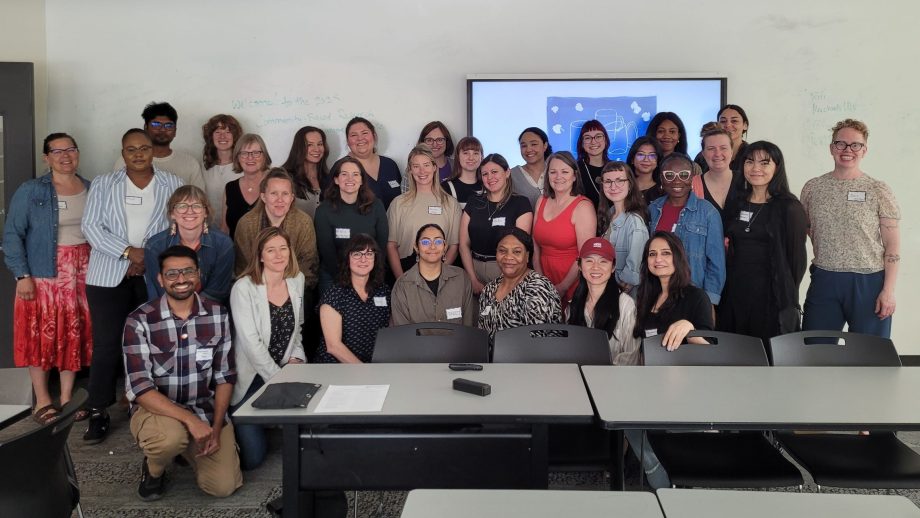The University of Winnipeg’s Inner-City Work Study Program is deepening connections between the academy and the wider community.
The program, which is part of the Department of Urban and Inner-City Studies, was inspired by the Truth and Reconciliation Commission of Canada’s 94 Calls to Action, which note reconciliation requires “sustained public education and dialogue, including youth engagement.”
Running every spring and summer, the 16-week program enables Indigenous, non-Indigenous, and newcomer students to learn and work together in Winnipeg’s inner city. Students spend four days per week in a work placement at a community-based inner-city organization, and one day per week in the classroom, learning theories of community practice in urban settings. Each placement is tailored to the student’s skills and interests.
I was completely immersed in everything they did there. It was a really special opportunity.
Danni Mesojednik
“The Inner-City Work Study Program is a powerful work-integrated learning experience for students and the communities they serve,” said Dr. Shauna MacKinnon, Professor and Chair in the Department of Urban and Inner-City Studies, and creator of the Inner-City Work Study Program. “Students learn community-practice theory, in the context of reconciliation, from instructors with experience in the field. They apply what they learn in community work placements and bring back to the classroom what they learn through their work.”
Students emerge from the program with far more than course credit. They also gain a better understanding of themselves, each other, the workforce, and Winnipeg’s social landscape, plus hands-on skills like grant writing, de-escalation, and harm reduction training.
Shynnia Kipling and Danni Mesojednik were both shaped by their time in the program.
Shynnia Kipling
Shynnia Kipling is a fourth-year Conflict Resolution major from Peguis First Nation who completed the Work Study Program in 2023. Her work placement was at the North Point Douglas Women’s Centre.
“I grew up in that area,” Kipling said. “I remember the Centre being built in the early 2000s. It was a resource that my mom, who raised me and my three brothers as a single parent, would access.”
She started out staffing the drop-in area, providing snacks and clothing, accepting donations, and assembling emergency food kits. Kipling saw firsthand how many clients must visit multiple service agencies to get basic essentials.
“It takes all day, sometimes, to get what you need when you live in poverty,” she said.
Working with clients living with mental health challenges gave Kipling a chance to put her conflict resolution and harm reduction skills into practice in a trauma-informed way.
“Being able to de-escalate a situation really benefited not only myself but the community member that I was speaking with,” Kipling said. “Applying what I learned in school, combined with my lived experience, gave me a huge advantage.”
Kipling’s largest task was to plan the Centre’s annual street festival, which attracted over 500 people.
“I had to write grants and sponsorship letters to obtain funding,” she said. “I was able to raise $6,500, which covered everything from food to entertainment and prizes.”
Kipling was also involved in a partnership between the Centre and the Women’s Health Clinic to hold a community pizza bake and sacred fire for over 40 people. The wood-fired oven hadn’t been operated since 2019 because of the COVID-19 pandemic.
Kipling said the Work Study Program can “change the narrative of what people see and know about the North End and the inner city.”
“It’s a beautiful place. The community members are amazing.”
Kipling is considering a master’s degree in social work or the Master’s in Development Practice (MDP) program.
Danni Mesojednik
Danni Mesojednik is a fourth-year double major in Urban and Inner-City Studies and English who completed the Inner-City Work Study Program in 2022. Growing up in Winnipeg’s West Kildonan neighbourhood, they worked part-time at a youth drop-in after high school. The experience inspired them to pursue a degree in a related field.
Mesojednik’s work placement occurred at Resource Assistance for Youth (RaY), which provides free resources and programs for anyone 29 and younger. Mesojednik enjoyed developing curriculum for RaY’s Level Up initiative.
“I was creating courses on things like grocery shopping on a budget, how to keep your house clean, and other things that are sometimes missed when youth are going into full-time work,” they said.
Mesojednik also shadowed staff doing a variety of activities.
“I was completely immersed in everything they did there. It was a really special opportunity,” they said.
Mesojednik now works as a Program Specialist for the BEST Program (Building Employment Skills for Today’s Youth) at Youth Employment Services. The 10-day course teaches young adults receiving Employment and Income Assistance the life and job skills needed to succeed in employment.
“It’s really exciting to use those skills directly from the Work Study Program and to know that the Work Study Program was why I was hired,” they said.
Mesojednik plans to continue doing employment work for non-profits, as they enjoy connecting with people.
“That’s where I’ve really found my passion. Working with youth to help them find a job that they like is the most rewarding thing, because with a job comes so many different kinds of independence.”
Mesojednik said they have also formed a friendship with their Work Study Program coordinator, who continues to be a mentor to them. They said the Program gave an opportunity more immersive than what a typical practicum can offer.





